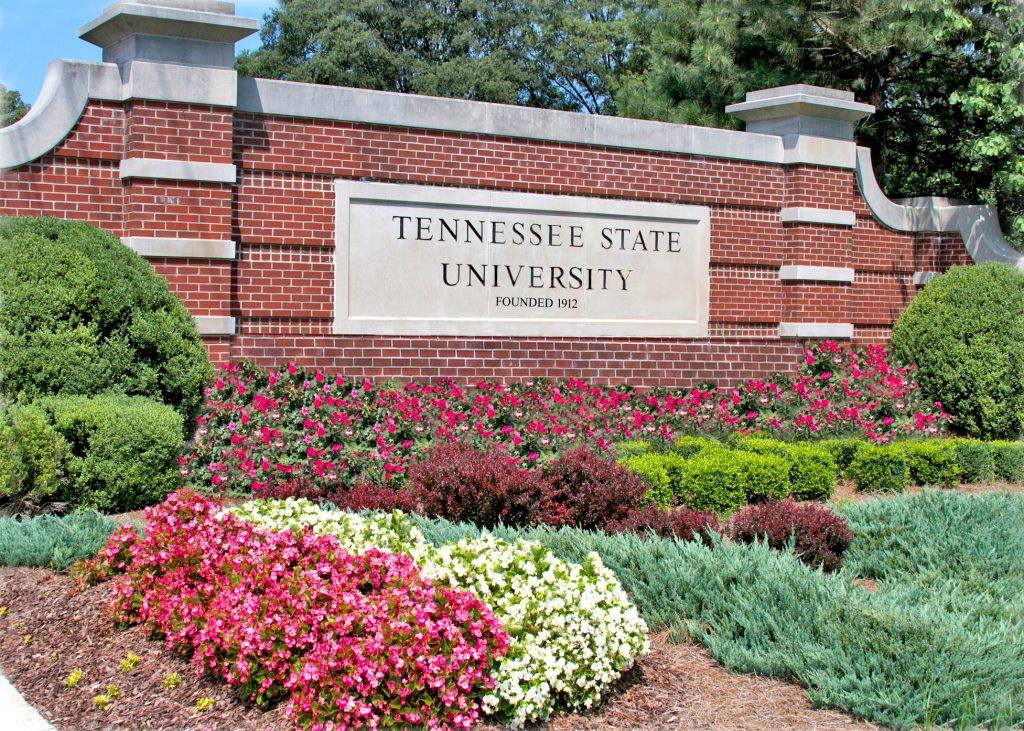
Tennessee underfunded its only public historically Black university by far more than originally estimated. Tennessee State University received $2.1 billion dollars less than it should have between 1987 and 2020, according to a federal analysis.
The leaders of the U.S. Department of Education and U.S. Department of Agriculture sent a letter to Governor Bill Lee, encouraging the state to make the university whole.
The new figure from the federal government is four times higher than even the largest initial estimate of underfunding. In 2021 a Tennessee legislative committee found the state had not matched the land-grant funds it owed to TSU between 1957 and 2007. The top end of their approximation was about half a billion dollars.
Reaction from an HBCU historian
Learotha Williams has taught a class at TSU on the history of America’s HBCUs. This announcement calls for a syllabus change.
“I was stunned,” Williams said. “This is one of those things if you were to ask me as a historian, if I thought would ever happen, I would’ve told you, ‘No.’”
But he said this kind of acknowledgement is “long overdue.”
“None of this stuff happened in the dark,” Williams said. “It shouldn’t have taken, you know, 50, 60 years since the Civil Rights Act for us to seriously take a look at this and say that this is wrong and we need to try to remedy this.”
TSU was found to be the most underfunded public land-grant HBCU, according to the figures from the National Center for Education Statistics. And the new $2.1 billion estimate is only the tip of the iceberg, since it captures only 33 years of the school’s funding.
“TSU opened its doors on Juneteenth, 1912, and it was underfunded since day one,” Williams said.
Letter from the Biden administration
The letter to the governor suggests the state could act ambitiously, tackling the funding disparity over several years through hefty state budget allocations. The secretaries of education and agriculture also float that “if an ambitious timetable is not a possibility” Tennessee could address the issue with a combination of “substantial” budget allocations and by matching federal land-grant funds to TSU two-to-one going forward.
The letter clarifies that the state should not reduce funding to other institutions or reduce general fund allocations to TSU while addressing the land-grant disparities. The secretaries also warn that other states have faced costly litigation forcing them to pay up to underfunded HBCUs.
I share with you a letter from the US Secs of Ag and Ed to state governors re underfunding of land grant HBCUs of over $12 billion!Underfunding calculated for TSU is $2.1 BILLION, highest of all HBCUs, and is critically needed for academic programs, housing and enrollment growth. pic.twitter.com/MJZYXWgV5U
— Dr. Glenda Glover (@gloverpres) September 18, 2023
TSU President Dr. Glenda Glover said she’s grateful that DOE and USDA are looking into historic underfunding.
“And I also want to add that this is not a blame game,” she said.
Glover doesn’t blame current state leaders for the situation. But she said there is a responsibility to address it.
“If we do nothing about it, that’s when it becomes our fault,” Glover said.
She said making up the funding would have a profound impact on students, as well as the university’s ability to offer competitive programs, better infrastructure and housing.
In an emailed statement, a spokesperson for Lee pointed out that he proposed the $250 million investment that TSU received this year to improve infrastructure. That allocation came after a bipartisan legislative committee found the state of Tennessee had underfunded the university by as much as $544 million.
“Governor Lee remains committed to working with legislative partners and community leaders to support the success of TSU and HBCUs across Tennessee,” wrote press secretary Elizabeth Johnson. The statement did not directly address next steps regarding the new federal analysis.
What’s next?
Based on historical precedent, Williams anticipates the state may get defensive.
“First thing you’re probably going to hear is that these schools have histories of mismanaging funds. And that’s something that goes all the way back to Reconstruction.”
He said allegations of mismanagement and corruption were used to discredit Black politicians after the Civil War.
“Those sorts of allegations are a common feature of being in positions of power at HBCUs,” Williams said.
And TSU has been under scrutiny. The state comptroller released an unflattering audit earlier this year that recommended replacing the school’s leadership. Among the issues cited was a “disregard of basic financial controls and fiscal management.” The audit also criticized a lack of housing to serve the large number of students enrolled at the school.
“What the Biden administration has done is documented that these people were running these universities without them being adequately funded,” Williams said. “So it’s kind of like, if you can imagine, I’m trying to run a household that requires two incomes, and only one person is bringing in money.”
While the state ultimately did not vacate the university’s board of trustees, it did approve $2 million to fund an additional forensic audit.
“So what went on last spring is probably a precursor to what we’re going to see going forward,” Williams said.
But, Williams said he hopes Tennessee does right by TSU.
“Our HBCUs have done amazing things and still are doing amazing things, and haven’t been funded properly,” Williams said. “The states should see this as an opportunity to make their educational systems better for all of its citizens. Because as the HBCUs prosper, the state will prosper as well.”

